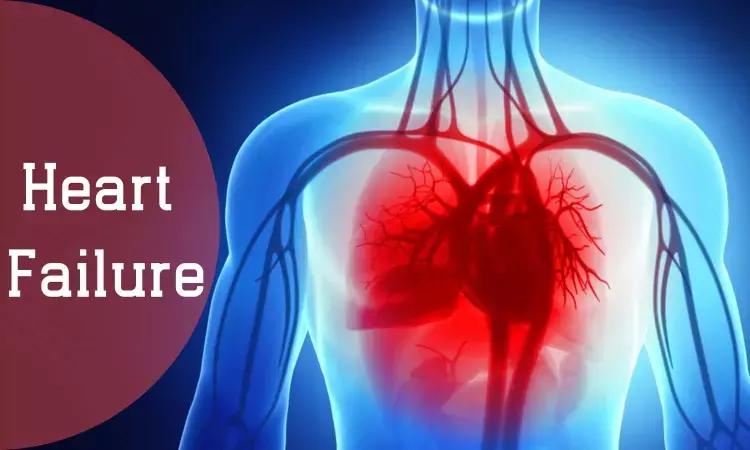- Home
- Medical news & Guidelines
- Anesthesiology
- Cardiology and CTVS
- Critical Care
- Dentistry
- Dermatology
- Diabetes and Endocrinology
- ENT
- Gastroenterology
- Medicine
- Nephrology
- Neurology
- Obstretics-Gynaecology
- Oncology
- Ophthalmology
- Orthopaedics
- Pediatrics-Neonatology
- Psychiatry
- Pulmonology
- Radiology
- Surgery
- Urology
- Laboratory Medicine
- Diet
- Nursing
- Paramedical
- Physiotherapy
- Health news
- Fact Check
- Bone Health Fact Check
- Brain Health Fact Check
- Cancer Related Fact Check
- Child Care Fact Check
- Dental and oral health fact check
- Diabetes and metabolic health fact check
- Diet and Nutrition Fact Check
- Eye and ENT Care Fact Check
- Fitness fact check
- Gut health fact check
- Heart health fact check
- Kidney health fact check
- Medical education fact check
- Men's health fact check
- Respiratory fact check
- Skin and hair care fact check
- Vaccine and Immunization fact check
- Women's health fact check
- AYUSH
- State News
- Andaman and Nicobar Islands
- Andhra Pradesh
- Arunachal Pradesh
- Assam
- Bihar
- Chandigarh
- Chattisgarh
- Dadra and Nagar Haveli
- Daman and Diu
- Delhi
- Goa
- Gujarat
- Haryana
- Himachal Pradesh
- Jammu & Kashmir
- Jharkhand
- Karnataka
- Kerala
- Ladakh
- Lakshadweep
- Madhya Pradesh
- Maharashtra
- Manipur
- Meghalaya
- Mizoram
- Nagaland
- Odisha
- Puducherry
- Punjab
- Rajasthan
- Sikkim
- Tamil Nadu
- Telangana
- Tripura
- Uttar Pradesh
- Uttrakhand
- West Bengal
- Medical Education
- Industry
Artifical intelligence tools help researchers identify five types of heart failure

UK: A team of UCL researchers have identified five heart failure subtypes from three electronic health record sources with machine learning. The findings, published in The Lancet Digital Health, could potentially be used to predict future risks for individual patients.
The research team trained the machine learning tools on data segments, and once they had selected the most robust subtypes, they validated these groupings using a separate dataset.
Heart failure is an umbrella term for when the heart cannot properly pump blood around the body. Current ways of classifying heart failure do not accurately predict how the disease is likely to progress.
For the study, published in Lancet Digital Health, researchers looked at detailed anonymised patient data from more than 300,000 people aged 30 years or older diagnosed with heart failure in the UK over 20 years. Using several machine learning methods, they identified five subtypes: early onset, late onset, atrial fibrillation related (atrial fibrillation is a condition causing an irregular heart rhythm), metabolic (linked to obesity but with a low rate of cardiovascular disease), and cardiometabolic (linked to obesity and cardiovascular disease).
The researchers found differences between the subtypes in patients’ risk of dying in the year after diagnosis. The all-cause mortality risks at one year were: early onset (20%), late onset (46%), atrial fibrillation related (61%), metabolic (11%), and cardiometabolic (37%).
The research team also developed an app that clinicians could use to determine which subtype a person with heart failure has, which may improve predictions of future risk and inform discussions with patients.
Lead author Professor Amitava Banerjee (UCL Institute of Health Informatics) said: “We sought to improve how we classify heart failure, with the aim of better understanding the likely course of disease and communicating this to patients. Currently, how the disease progresses is hard to predict for individual patients. Some people will be stable for many years, while others get worse quickly.
“Better distinctions between types of heart failure may also lead to more targeted treatments and may help us to think in a different way about potential therapies.
“In this new study, we identified five robust subtypes using multiple machine learning methods and multiple datasets.
“The next step is to see if this way of classifying heart failure can make a practical difference to patients – whether it improves predictions of risk and the quality of information clinicians provide, and whether it changes patients’ treatment. We also need to know if it would be cost effective. The app we have designed needs to be evaluated in a clinical trial or further research, but could help in routine care.”
To avoid bias from a single machine learning method, the researchers used four separate methods to group cases of heart failure. They applied these methods to data from two large UK primary care datasets, which were representative of the UK population and linked to hospital admissions and death records. (The datasets were Clinical Practice Research Datalink (CPRD) and The Health Improvement Network (THIN), covering the years 1998 to 2018.)
The subtypes were established based on 87 (of a possible 635) factors, including age, symptoms, the presence of other conditions, the medications the patient was taking, and the results of tests (e.g., of blood pressure) and assessments (e.g., of kidney function).
The team also looked at genetic data from the UK Biobank study of 9,573 individuals with heart failure. They found a link between particular subtypes of heart failure and higher polygenic risk scores (scores of overall risk due to genes as a whole) for conditions such as hypertension and atrial fibrillation.
Reference:
Prof Amitava Banerjee, Ashkan Dashtban, Suliang Chen, Laura Pasea, Johan H Thygesen, Ghazaleh Fatemifar, Benoit Tyl, Tomasz Dyszynski, Prof Folkert W Asselbergs, Prof Lars H Lund, Tom Lumbers, Prof Spiros Denaxas, Published:June, 2023DOI:https://doi.org/10.1016/S2589-7500(23)00065-1
Dr Kamal Kant Kohli-MBBS, DTCD- a chest specialist with more than 30 years of practice and a flair for writing clinical articles, Dr Kamal Kant Kohli joined Medical Dialogues as a Chief Editor of Medical News. Besides writing articles, as an editor, he proofreads and verifies all the medical content published on Medical Dialogues including those coming from journals, studies,medical conferences,guidelines etc. Email: drkohli@medicaldialogues.in. Contact no. 011-43720751


